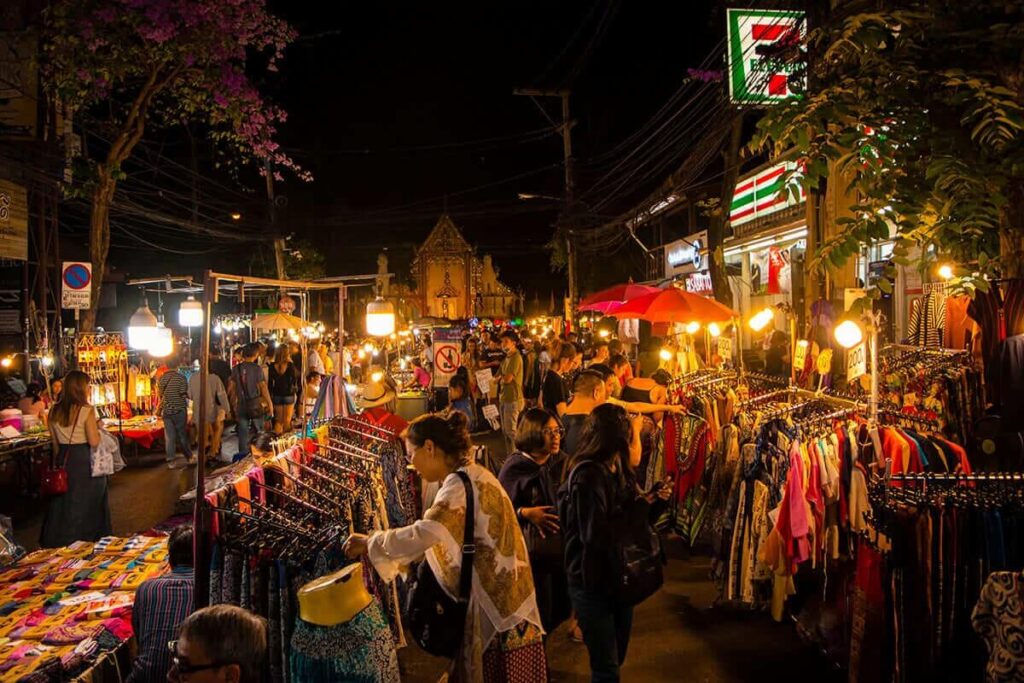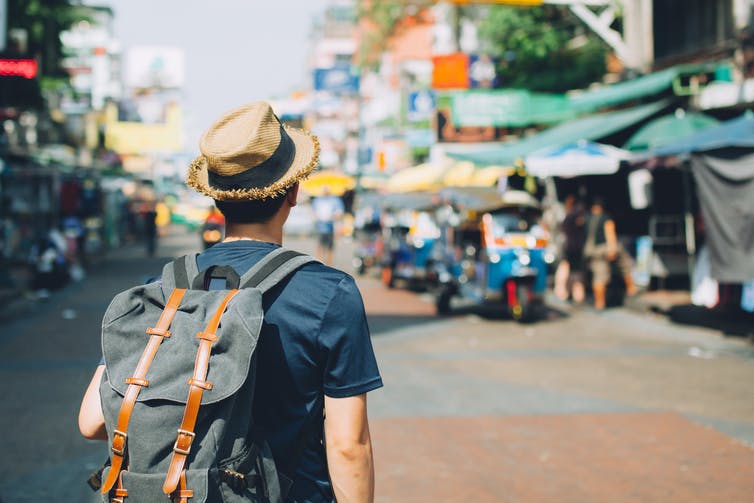I know what you’re thinking. You’re thinking, “Why would I want to go to a place that’s ‘off the beaten path’?” Unless you’re from one of the world’s most remote areas, this is exactly what you’re thinking. Think about it – the only way to get to most parts of the world is to fly. This means that most of the world’s most interesting and scenic places are located along the coastlines. They are also more expensive to get to, and less accessible. This means that you’re going to want to go there, don’t you?
The popular term “off the beaten path” has been used for many years, and its origins are an interesting story. That’s because back in the 1930s, U.S. President Franklin D. Roosevelt was trying to lure tourists to the National Park System, but he needed a way for them to trust the parks were safe.
The phrase “off the beaten path” was coined to help the public understand that the parks were technically off the main highways, but you still might encounter hikers, bikers, and other travelers. In the 1960s, the phrase “off the beaten path” was adopted as a travel slogan by Gary Snyder, an American poet and naturalist who promoted public hiking, camping,
Do you know what the phrase off the beaten path really means? I didn’t until I went on an adventure and discovered what life is really like when you leave the tourist trails. In this blog you will learn about the experiences I’ve had, and hopefully you will learn a thing or two from them.. Read more about what does traveling mean and let us know what you think.
Early this week, I rode the train back to Brooklyn from downtown Manhattan.

When the R train arrived in Union Square, I turned around to saw the huge line of people waiting for the Q express and decided against it. As soon as the R had gone, the Q sputtered into the station.
The fast train, it found out, was everything but.
The train made numerous stops between stations, lurching forward and then halting again. Passengers groan heavily, squeezed to the gills. On the way home, we were all squashed together like sardines.
On a late Monday in New York, I glanced about and pondered what people’s tales were amid this jumble of humanity.
I was dressed for meetings in a skirt, silk top, and boots; no one would guess I lived somewhere else, that I had spent the previous three years traveling the world.
What is underneath the superficial layers is never known.
This summer, New York will host “Manhattanhenge.”
The big hairy arm of my next-door neighbor pushed down the lady opposite from me as the train came to a stop for the 20th time. We were all gathered around the train’s pole, but only he seemed unconcerned. He continued elbowing her in the face as he walked, either because he was lost in his music or because he was just indifferent.
A few minutes had gone. Five and six.
My neighbor was still halted on the Brooklyn Bridge, sniffing the giant’s arm to her right.
I went to her and advised her to begin removing his arm hairs one by one.
She guffawed.
The guy on the other side of the table suppressed a chuckle.
We sat there for a little longer, but we didn’t move. Six of us stood in a star configuration, each of us connected by the metal pole that secured us to our assigned subway seats and grounded us for the length of our journey home.
When you’re immobile in the train, there’s a strange kind of closeness that emerges; you can’t help but notice things instead of blankly looking past the person in front of you. Your straphanging neighbors begin to take form as actual individuals with idiosyncrasies, personalities, and tales, rather than random strangers.
Still stuck on the Brooklyn Bridge after numerous service alerts (“broken subway is broken”), the lady to my right bent her head in my direction and muttered, “since I’m not going to pluck arm hairs out, tell me – what’s your life story.”
So I informed her.
And she told me hers, and then we both looked across the street at the guy who shrugged and said he was from Florida, and that he had just come here to accept a job after years of freelancing.
“Wasn’t the train supposed to be quick?” He inquired.
We exchanged sympathetic nods.
What does it mean to go “off the beaten path”?

I often get letters asking for recommendations for off-the-beaten-path destinations. “I know you post these locations on your blog,” they write, “but where are the hidden spots that no one else knows about?”
These readers are often seeking a connection to people that seems special or holy, something unique. We’ll be able to reflect back on this tale and relate it to our friends at home. “Then she asked me to her family’s home, where I ate with them and stayed up late!”
But, in order to receive that sense of genuine invitation or “authenticity,” do we really need to be away from all the tourists?
Every Sunday, I rode my motorcycle to the night market in Chiang Mai to have a massage and grilled pork and sticky rice.
Sundays were made better by a regimen that included smoky meat and sharp, spicy sauce, followed by an hour of someone pounding on my legs and back. And I always felt like I was in another planet from the unending stream of visitors passing by in the midst of the noise and bustle, the fluid movement of close and distant.
Every week, I’d go to the same lady, and as she did her magic, we’d make fun of the odd clothes on passers-by or chastise the guys on staff for tormenting the youngest employee.
The song and dance between her and the other masseuses was over-the-top and hilarious, with plenty of slapstick comedy and laughter. By the time I left Chiang Mai, I had been showered with embraces and given food-filled bags to take with me on my trip.
Amazing smoked pork from Chiang Mai’s Sunday Walking Street.

Even yet, when people ask for Chiang Mai recommendations, they don’t want to go to the night market. They want something unique, something that distinguishes their visit from others.
You don’t need the social clout of going outside the routine to have remarkable experiences, just as you don’t need it to have memorable experiences in New York.
Nothing in Chiang Mai happened to me because I’m unique or because I befriended particular individuals. It was just a simple case of real human interaction. All you have to do is look at the people around you – really look at them, connect with them, and smile.
The rest is easy to figure out.
I rode the train to the Lower East Side three days before my trip to Brooklyn for the Restless Legs travel reading series.
Three Frenchmen were lost, and since I’m from Montreal, I stepped in to assist them in determining their next steps. They remained on the platform, and as I sat down on the train, a lady next to me remarked that she should have studied French in high school. (Let’s just say these Frenchmen weren’t very attractive.)
She was born in Russia and spent some time in New York. She was taken aback when I told her about my trip to Russia and Siberia. This lighthearted banter evolved into a lengthy talk about Russian and Siberian politics, as well as an invitation to dine at her family’s home.
None of these tales distinguish me, and none of them are really out of the ordinary in terms of human connection.
Why do people’s jaws drop when I tell them about my new metro pals, and they ask, “Why don’t I meet people on the subway?”
While it’s true that my travels have made me more receptive to these chance encounters, I’ve had comparable experiences before leaving my job to travel the globe. Perhaps it’s the same thing that keeps me wandering around cities in search of markets and food rather than things to see; I’m more intrigued by people’s interactions.
To individuals who write to express they’d want to travel but aren’t quite ready, I recommend getting out of their comfort zone, even if it’s only in their own town.
Do you wish to go off the beaten road for a while? Begin small, and gradually expand your presentation.
It’s a fantastic start.
When individuals write to me asking for recommendations for remote locations, I give them a list. But I also think kids should be open to a variety of human encounters as they go about their days.
Yes, I like getting away from the tourists and the many people who travel for the purpose of traveling, but it isn’t necessarily about visiting the most remote locations. Those similar connections and new friendships may be found even in the busiest cities.
If you’re thinking about traveling for a vacation or a short trip, it’s a good idea to check out some of the options for travel insurance. You may be surprised by what you find. Travel insurance can give you peace of mind when you travel off the beaten path.. Read more about benefits of travelling essay and let us know what you think.
Frequently Asked Questions

What is a traveling person?
A traveling person is someone who travels a lot, often for work.
Why is it good to travel?
Traveling is a great way to learn about different cultures and people.
What means travel well?
To travel well is to be able to move quickly and smoothly.




